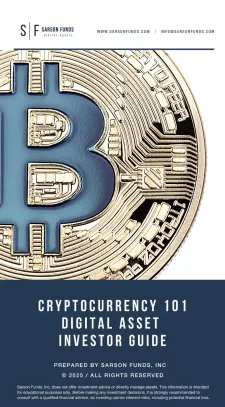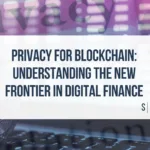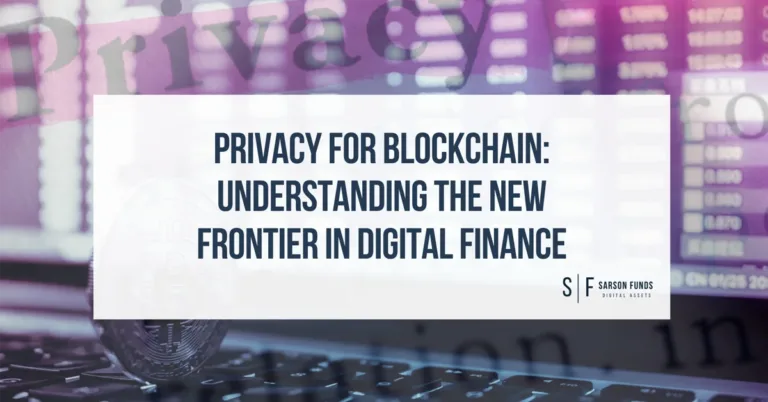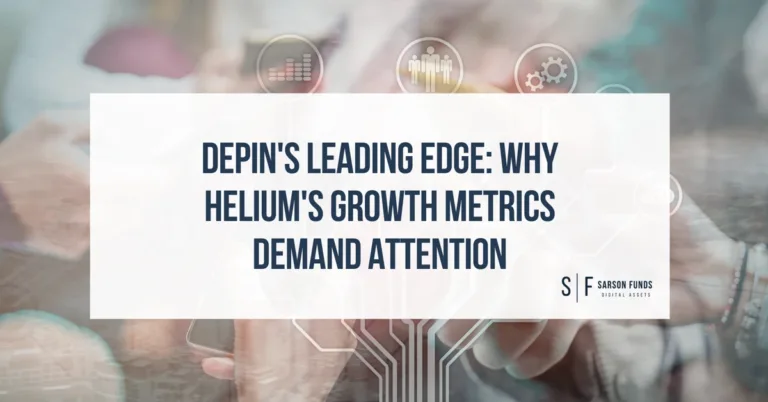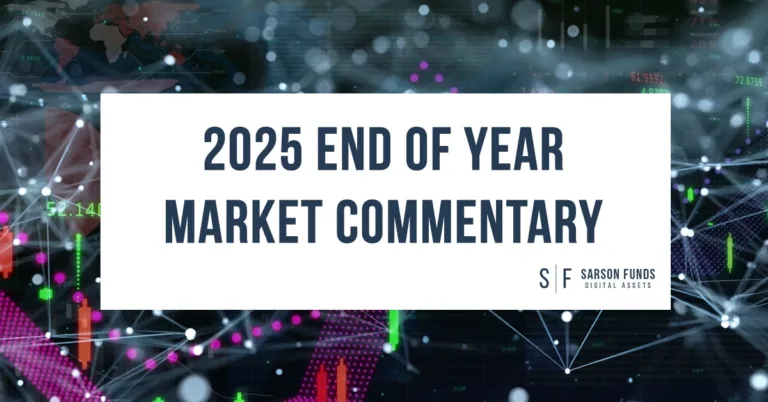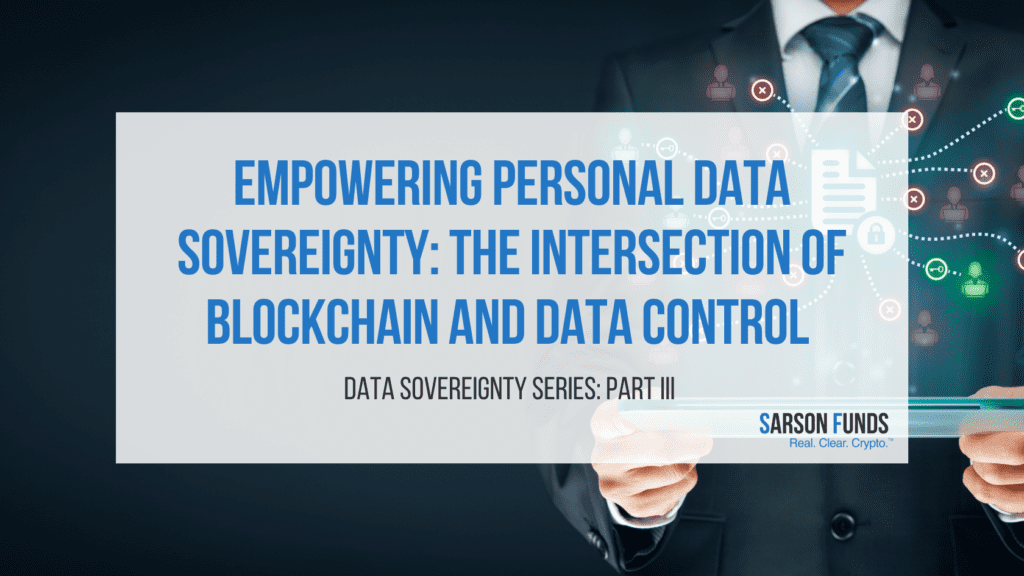
In recent weeks, data sovereignty has been on the forefront of our conversations at Sarson Funds. With technology advancing every day, we recognize that we are in a race against time to educate our community on the importance of data in the digital age, from the consequences and opportunities surrounding data, the forces in contention for your data, to how data intersects with the digital asset ecosystem. This chapter of the Data Sovereignty Series will focus on the intersection of blockchain and data control, positioning blockchain as the solution that will revolutionize the future of personal data sovereignty.
The demand for data, the control of it, and its utility increases every year, and so does the incentive for both companies and hackers to profit from it. As discussed in prior segments, big tech companies such as Amazon Web Services, Microsoft, and Google control the vast majority of the market for data storage. The current data oligopoly allows for centralized companies to set their own standards for data ethics and management. At the same time, big tech’s grip on the global data supply makes them a target for hackers and malicious contenders.
When it comes to accessing data, people want simplicity and security, all at the lowest cost. Blockchain has emerged as the premier technological infrastructure to process, store and distribute the massive influx of data being experienced as the digital age rolls out. While initially used for exchanging digital currencies, blockchains can manage a variety of data types and functionality, from cryptocurrencies to smart contracts and Non-Fungible-Tokens (NFTs). As digital assets have harnessed blockchain technology, so too can data. Like digital assets, datasets can be distributed and secured on blockchains through tokenization to become an alternative form of digital assets. Blockchain’s decentralized nature would work to manage tokenized data the same way blockchains intermediate digital assets.
In practice, secure and low-cost blockchains can do everything, if not more, for data than centralized web services providers can. Since blockchain is decentralized, the transaction validation process for on-chain transfer of asset ownership relies on the community instead of a centralized body for execution. In a decentralized system, the transfer of assets is visible to every participating validator node on the network. Every transaction on the blockchain requires verification through a community confirmation process commonly achieved through mining (Proof-of-Work) or by a network user with stake of an asset (Proof-of-Stake). Using group consensus, so long as 51% of community validators or more confirm a transaction, the transaction executes, and its record is engrained within a block on the blockchain. Once a block has reached its maximum capacity for transaction records (different blockchains have different block sizes), the block will be confirmed and published in the immutable record of the chain. If the nodes determine a transaction to be fraudulent, it will not be recorded in the affirmed chain.
In centralized systems, there is no community validation process and no transparency into data transfers, allowing transfers to happen in the dark, creating a trust deficit between data creators and centralized data storage providers. To prevent a central body from controlling data, the blockchain utilizes community consensus to transfer information with transparency.
Shifting the data economy from centralized companies to decentralized communities gives power to the individuals within the blockchain network. In the scope of data control, decentralization reinstates data sovereignty to data creators. By eliminating the middleman commonly required to intermediate data transfers, third party access risks and potential misappropriation are eliminated. With blockchain as the trustless facilitator of data transactions, users can achieve full control over where their data goes and who can access it.
Blockchain unlocks a new frontier of utility for data creators, allowing them to potentially profit from their own data distribution to interested third parties instead of big tech. Blockchains allow all assets to be tokenized, unlocking a new horizon of power and control for asset holders. A leader in the push to reinforce personal data sovereignty is Crown Sterling, who’s proprietary blockchain empowers users with timeless control of their tokenized assets, including data, NFTs and Crown Sterling’s native token, the Crown Sovereign. Crown Sterling’s blockchain is resistant to the capabilities of quantum computing, which pose a great threat to the vulnerable encryption mechanisms centralized bodies at large.
In addition, the decentralized web also poses an alternative solution to safe data creation and storage. Coined Web 3.0, the decentralized web will extend the internet to the blockchain, and further decentralize data creation and storage. Cryptocurrencies that aim to streamline Web 3.0 capabilities include The Graph ($GRT), Filecoin ($FIL), Helium ($HNT), Livepeer ($LPT) and Sentivate ($SNTVT). We recommend learning more about these tokens as Web 3.0 grows mainstream.
Sarson Funds seeks to equip our audience to understand the growing utility of blockchain technology to enforce the next chapter of personal sovereignty as the digital age unfolds. The versatility of blockchain technology positions the crypto ecosystem to be a core element of the next chapter of the human experience, and we want to empower the world to navigate this transition safely. For more on the developing conversation of data sovereignty, be sure to tune into next week’s chapter of the Data Sovereignty Series, airing Tuesday, September 21st.
Disclosures: Not investment advice. It should be assumed that Sarson Funds or its affiliated managers hold positions in all projects that are discussed. It is not possible to invest in any project directly through Sarson Funds, Inc. or its affiliated managers. Any investment product offered by managers affiliated with Sarson Funds should be assumed to be only available to Accredited Investors and subject to the individual terms and conditions of that offering including but not limited to those eligibility requirements associated with U.S. Securities Regulation D, section 506c. Talk with your financial advisor before making any investment decisions or have them contact Sarson Funds directly at [email protected]

